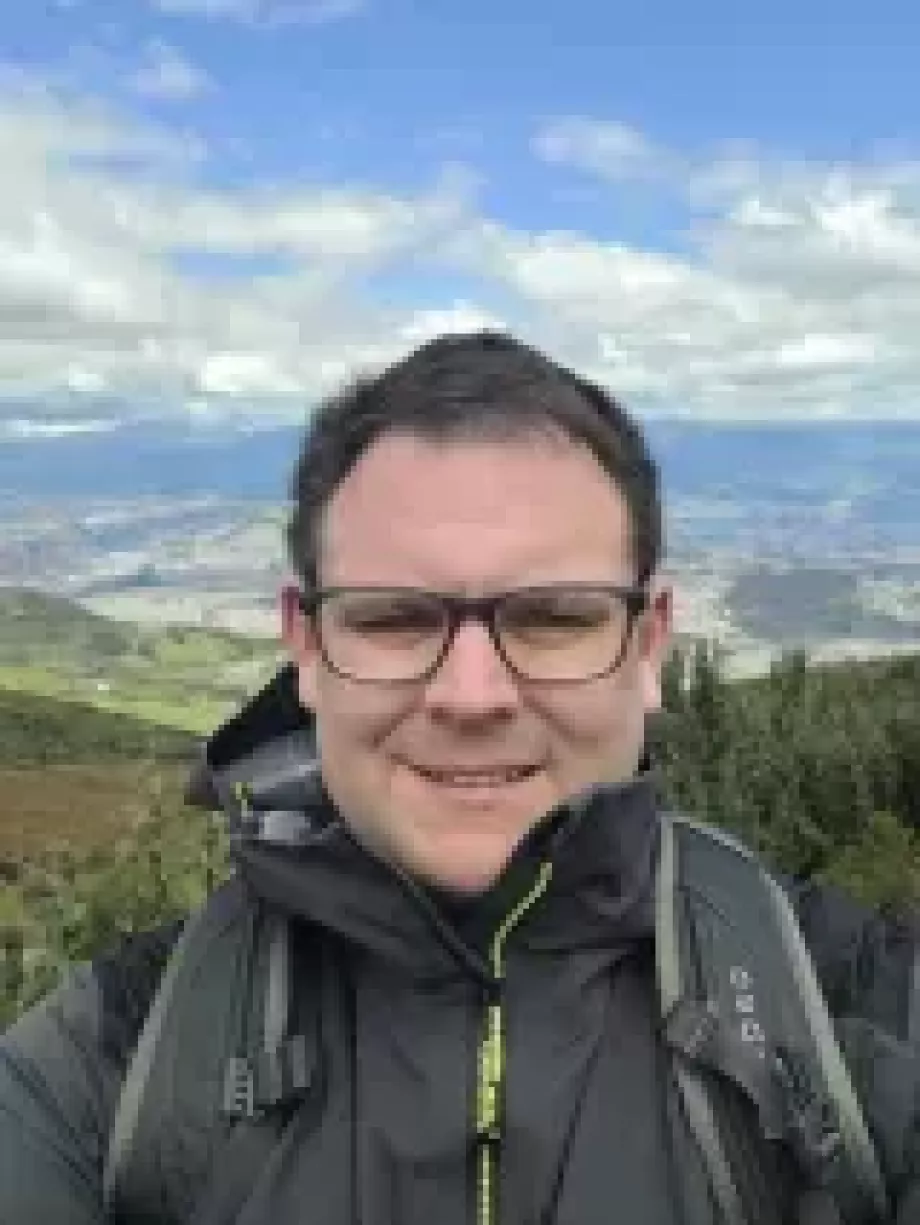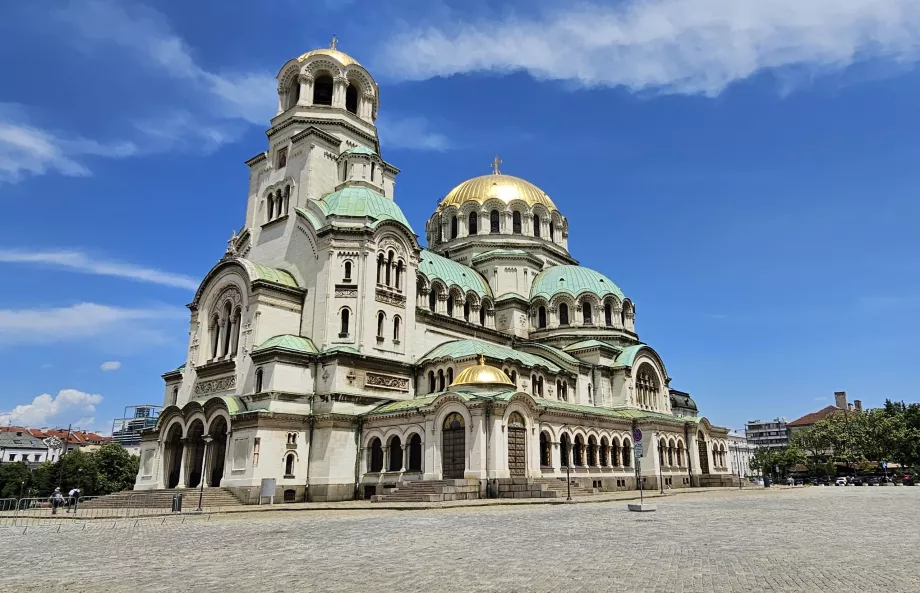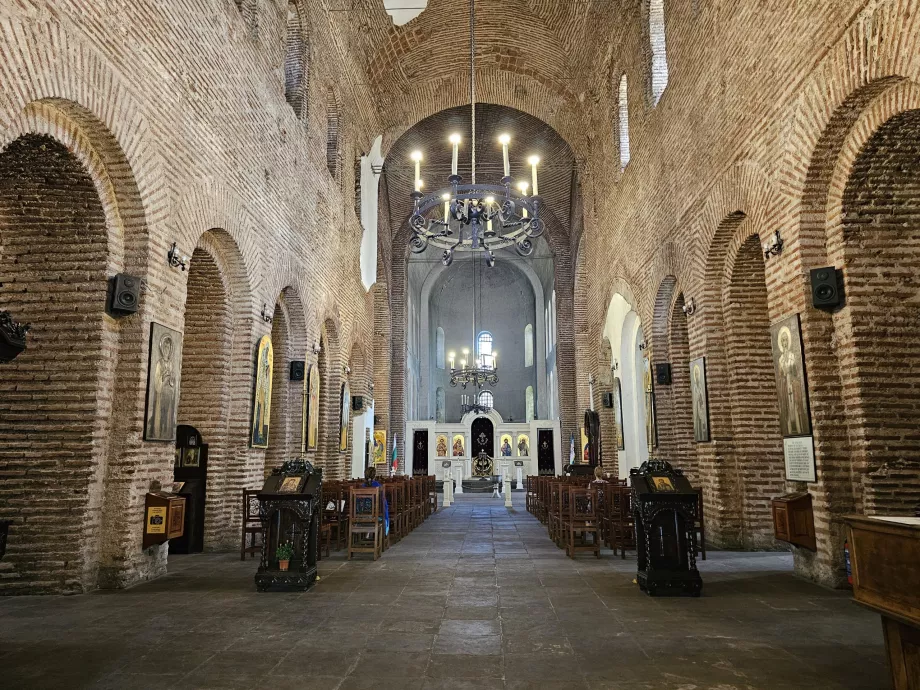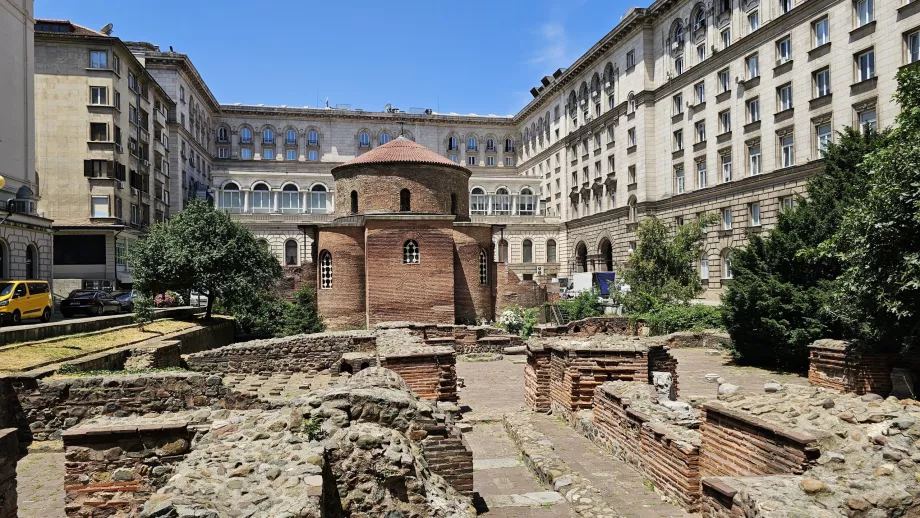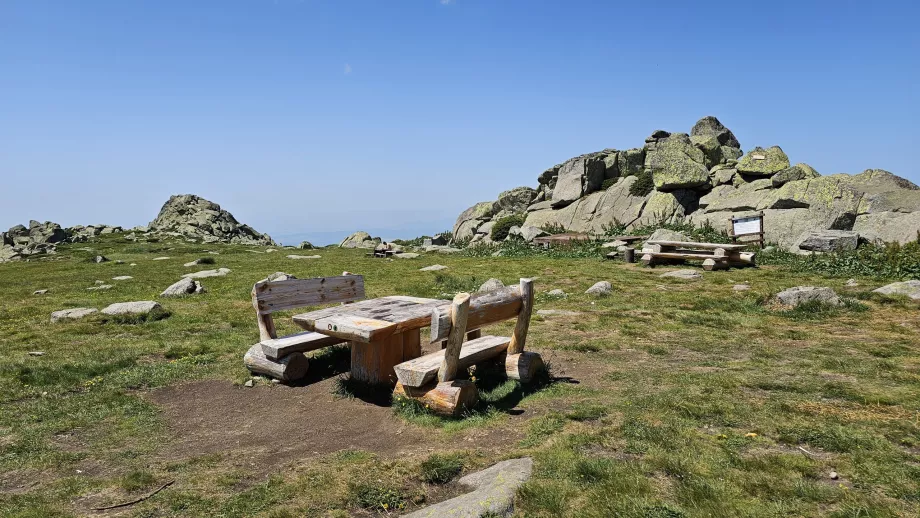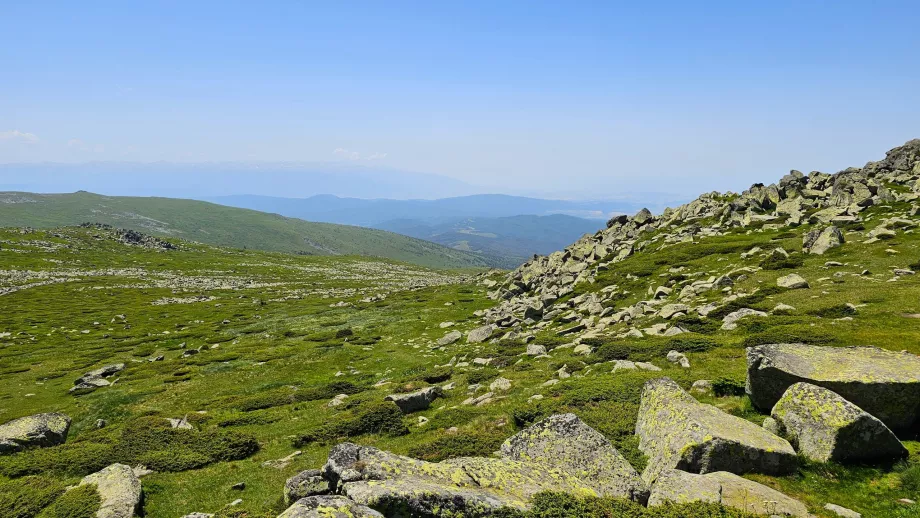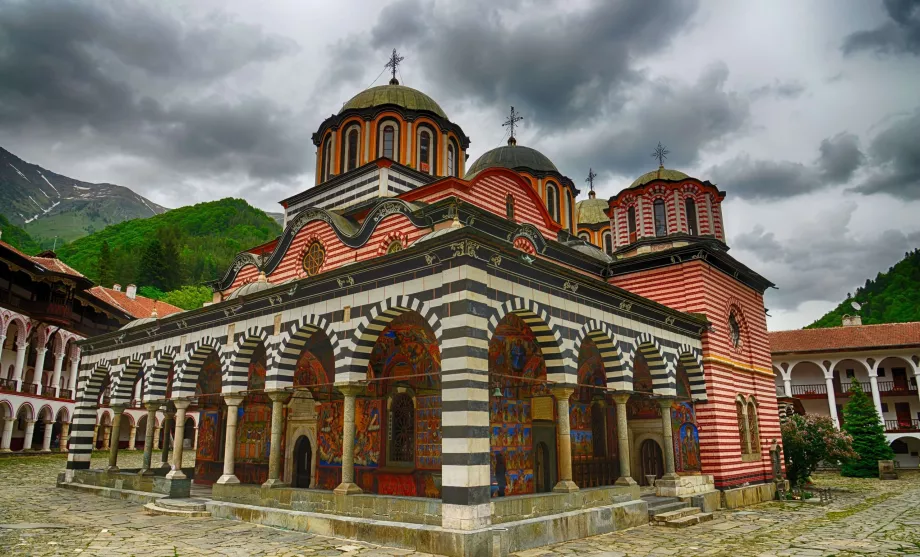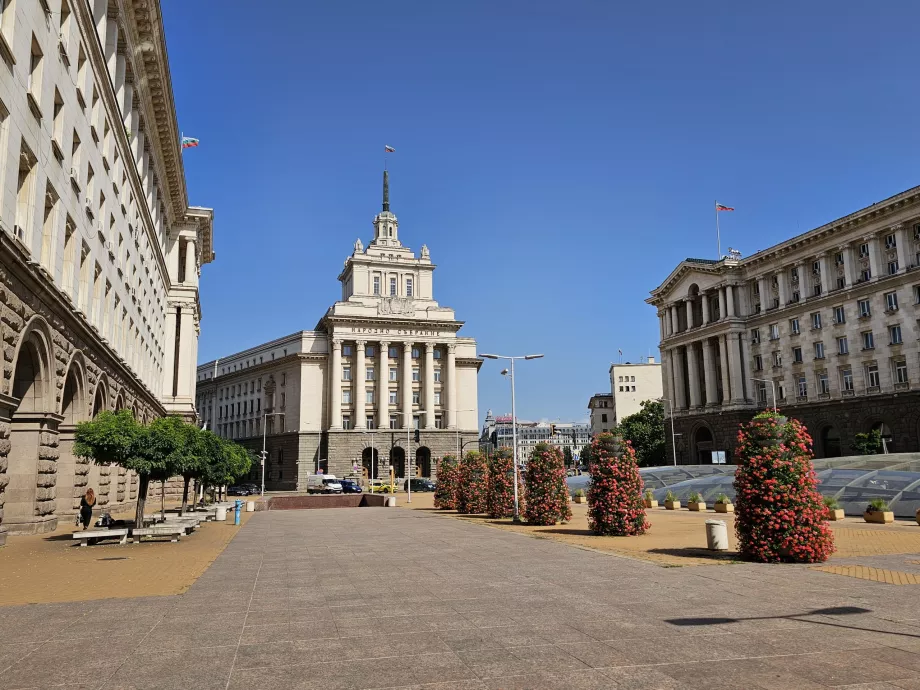What to do in Sofia
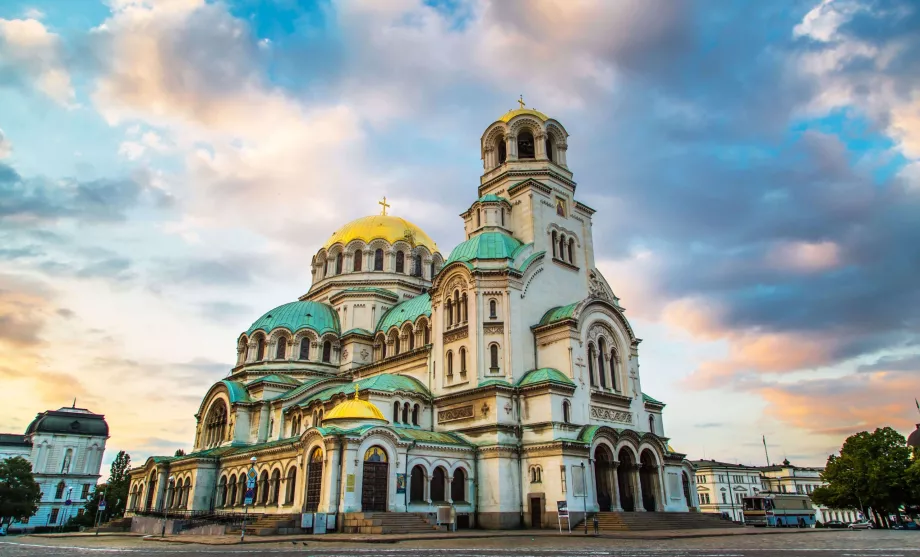
How to have fun in the Bulgarian capital? Where to go on excursions from Sofia? Read in this chapter.
Discover Sofia's historical sights
You might not immediately think of any world-famous monuments when you think of Sofia.
The city has no compact historic centre, as most of it was destroyed under Turkish rule, but a surprising number of independent monuments have survived to the present day or were built after the fall of the Ottoman Empire.
The sights in Sofia are concentrated in a small area around the centre and can therefore be easily circumnavigated on foot in half a day.
- Alexander Nevsky Cathedral - Bulgaria's most famous and largest monument and one of the largest Orthodox churches in the world
- Boyana Church - a 10th century church and Sofia's only UNESCO World Heritage Site
- St. Sophia Church - an inconspicuous but very valuable church and the oldest church in Sofia
- Ancient Serdica - three archaeological sites right in the centre of Sofia
- Sveta Nedelya Cathedral - the main church of the Eastern Orthodox Church
- Synagogue - one of the largest Jewish shrines in Europe
- Banja Pasha Mosque - a well-preserved 16th century mosque
And many other historical, as well as contemporary monuments.
Hiking in the mountains
Sofia, with its location directly under the Vitosha mountain massif, encourages hiking in the mountains.
It is Vitosha with its highest mountain Cherni vrah, 2 290 m that is one of the most popular destinations for locals and tourists.
The mountain is criss-crossed by dozens of kilometres of well-marked hiking trails and is well accessible by bus lines 63 and 66, which run from metro stations. You can also reach the slopes of Vitosha by car.
What are the best hiking trails? Where can you find timetables and buses? Is there a cable car to the highest mountain?
Find out in our mini guide to Vitosha.
Skiing
We won't leave the Vitosha Mountains just yet. While during the summer the hills above Sofia are full of hikers, in winter there is skiing on Vitosha.
The ski area "Vitosha-Aleko" starts right on the southern outskirts of Sofia and boasts 20 km of slopes served by 1 gondola lift, 2 chair lifts and 4 pole lifts.
To reach the lower gondola station, you can take the number 66 bus line from the "Vitosha" Metro Station.
View hotels near the ski slopes
When is the ski season in Sofia?
There is plenty of snow in the mountains above Sofia, mostly from mid-December to the end of February. The ski season here is relatively short due to Sofia's southern location and the lack of artificial snow.
What is skiing like in Vitosha?
Skiing is only in the upper parts of the mountains from the Aleko hut upwards, i.e. at altitudes of about 1,500 to 2,100 metres.
The slopes are therefore relatively short (the longest is about 2 km). There are all types of slopes from steep black to very gentle blue.
The slopes tend to be well groomed in the morning and, thanks to the north-facing position of the slopes, the snow quality remains relatively good in the afternoon.
How much does a ski pass cost?
A day pass sells for around 50 bgn.
For up-to-date information on prices, conditions of the slopes and lifts, visit the official website of the ski area: skivitosha.com.
Other ski resorts
There are many more larger ski resorts in Bulgaria than Vitosha, and the nearest one is about 200 km from Sofia.
Check out the list of famous ski resorts in our guide to Bulgaria.
A trip to Rila Monastery
Roughly 120 km away, the 10th century Rila Monastery is a UNESCO World Heritage Site and one of the most popular sights in all of Bulgaria.
The trip to the monastery can be done by public transport in one day, but we would rather recommend renting a car and going to the Rila mountains for at least 2-3 days.
What are the transport options to the monastery? How much is the entrance fee and when is it open? Find out in our article about the Rila Monastery.
In the footsteps of socialism
Bulgaria was part of the so-called Eastern Bloc for more than 40 years under the rule of socialist dictators and political parties.
This period remains most evident in the architecture, when the whole centre of Sofia was very much transformed.
During the 1950s and 1960s, wide straight boulevards were created in Sofia and the centre was built up with monumental government buildings in the style of socialist classicism.
The famous Largo building complex right in the centre remains the most visible monument to the socialist era.
Visit the museums
If you're looking for indoor activities when the weather is inclement, discover Sofia's several museums. Their collections may not be among the most comprehensive in Europe, but they're sure to keep you entertained for a few hours.
What museums in Sofia do we recommend visiting?
- National History Museum - Bulgaria's largest museum is located in the beautiful Boyana Park on the outskirts of the city and has over 650,000 objects in its collections across Bulgarian history.
- Official website: historymuseum.org
- Museum of Socialist Art - This interesting and slightly bizarre museum displays art objects from the communist era.
- Official website: nationalgallery.bg
- National Gallery - Bulgaria's most important gallery features mainly paintings and sculptures by artists from Bulgaria and Southeastern Europe.
- Official website: nationalgallery.bg
- National Archaeological Museum - located right in the centre in the Largo complex, it is a great complement for the ancient excavations of Serdica, which you can find just a few dozen metres from the museum.
- Official Website: naim.bg
- Sofia Regional History Museum - describes the complete history of Sofia from antiquity to the present day and is located in the former mineral baths building
- Official website: sofiahistorymuseum.bg
Any questions left?
If you have any questions or comments about the article...
